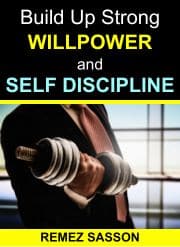
Exercise fatigue can derail even the most dedicated fitness enthusiasts. Tackling it effectively makes your workout journey sustainable and enjoyable.
In early 2024, breakthroughs in sports science and expert recommendations offer new ways to combat fatigue. From specialized training methods to optimizing nutrition and rest, leveraging these techniques helps you push through those tough workouts.
In today’s piece, we will explore several effective techniques to help you overcome exercise fatigue and enhance your performance.
1. Optimizing Your Nutrition for Peak Performance
Browse our online courses on meditation, positive thinking, overcoming procrastination, confidence, and freedom from distractions.
What you eat directly impacts your workout energy levels. Think of food as fuel, not just sustenance. Consuming the right mix of nutrients before and after exercising can significantly reduce fatigue.
In 2024, sports nutrition has taken a leap forward with personalized meal plans based on genetic testing. These tailored diets ensure that you’re getting the exact nutrients your body needs.
For example, adding complex carbs like quinoa or sweet potatoes before a workout provides steady energy release. Also, post-exercise recovery shakes packed with protein and electrolytes can help replenish lost minerals and repair muscle tissue faster, making them indispensable for sustained performance improvement.
2. Incorporating HIIT for Enhanced Stamina
Besides optimizing nutrition, integrating High-Intensity Interval Training (HIIT) into your routine can help combat exercise fatigue. HIIT involves short bursts of intense activity followed by brief rest periods. This technique maximizes cardiovascular efficiency and boosts stamina.
Recent advancements in 2024 show that personalized HIIT programs are more effective when tailored to individual fitness levels and goals. Think of it like a custom-fit suit; it just works better.
For instance, Trainwell’s online workout trainers design bespoke HIIT routines that balance intensity with recovery, helping you build endurance without overtraining. The result? Increased energy reserves and reduced fatigue during prolonged workouts.
3. Prioritizing Quality Sleep for Recovery
Alongside a smart nutrition plan and HIIT routines, prioritizing quality sleep is crucial to overcoming exercise fatigue. Sleep acts as the body’s natural recovery process, repairing muscles and replenishing energy stores.
In 2024, sleep science highlights the importance of consistent sleep patterns and creating an optimal environment for rest. Think of your bedroom like a charging station; it needs to be right to power up effectively.
For example, aim for 7-9 hours of uninterrupted sleep in a cool, dark room free from electronic distractions. Incorporate relaxing pre-sleep routines such as reading or meditation.
These practices ensure your body gets the restorative rest it needs, ultimately reducing fatigue and enhancing overall workout performance.
4. Implementing Active Recovery Days
Incorporating active recovery days into your fitness routine goes hand-in-hand with quality sleep to combat exercise fatigue. Active recovery involves low-intensity activities that promote blood flow and muscle repair without putting extra strain on the body.
Think of it like gently kneading dough; you’re working out the kinks without overdoing it. For example, engaging in light activities such as walking, yoga, or swimming on rest days keeps your muscles limber and aids in reducing soreness.
Recent findings from sports science in 2024 emphasize the effectiveness of these methods for enhancing overall performance and preventing burnout.
Incorporating these easy-going sessions can help you stay consistent with your workouts while allowing your body time to recover properly.
5. Harnessing Mindfulness and Meditation
Lastly, harnessing mindfulness and meditation techniques can be a game-changer in combating exercise fatigue. Mental fatigue often translates to physical exhaustion, so managing stress levels is crucial for maintaining peak performance.
Imagine it as decluttering your mind; just like clearing out unnecessary junk from a room, mindfulness helps clear mental fog.
Practices such as deep breathing exercises, progressive muscle relaxation, or guided imagery can help center your thoughts and reduce overall stress.
In 2024, sports psychologists advocate these methods to enhance focus and resilience during workouts. Regular meditation sessions improve sleep quality too, complementing other recovery strategies like active recovery days. Together they create a holistic approach to overcoming exercise fatigue effectively.
Conclusion
Overcoming exercise fatigue is about smart strategies and consistent effort. From optimizing your nutrition and sleep to incorporating HIIT, active recovery, and mindfulness, each technique works like a piece of a puzzle.
When combined, they form a comprehensive plan for peak performance. Embrace these methods to not just meet your fitness goals but exceed them with renewed energy and resilience. Remember, it’s not about pushing harder; it’s about working smarter. So, keep at it!

